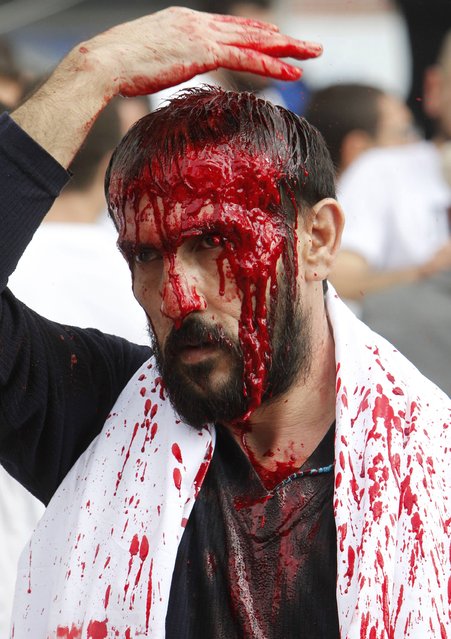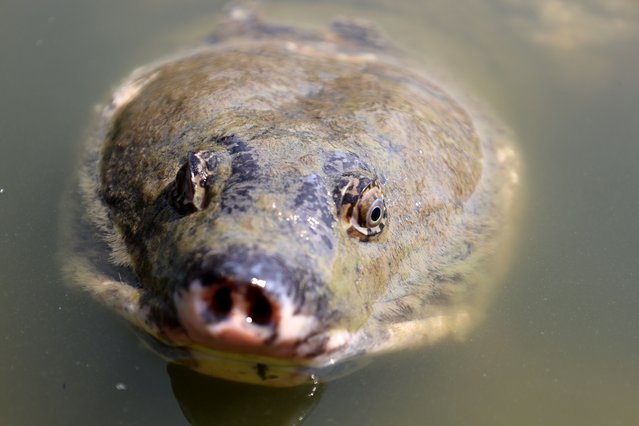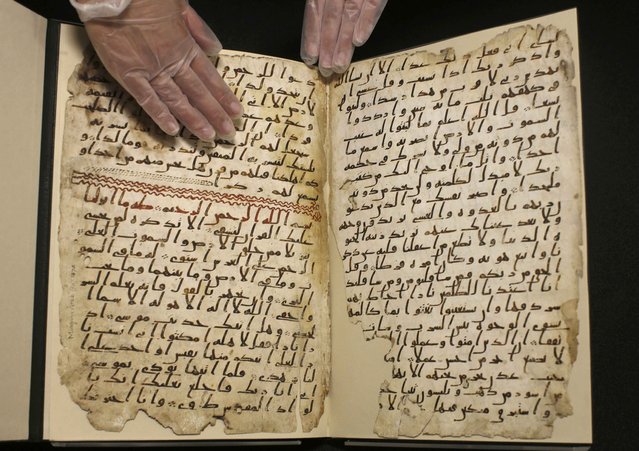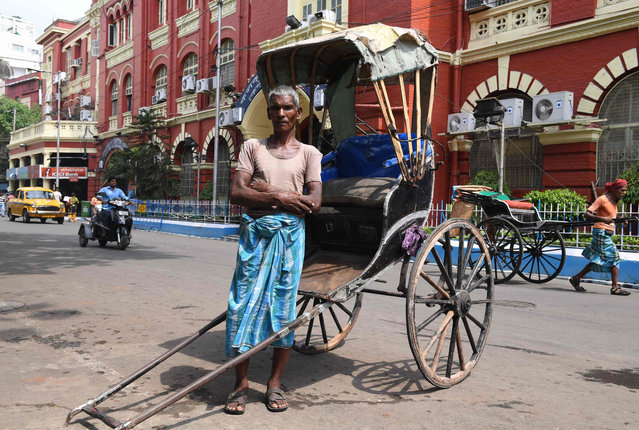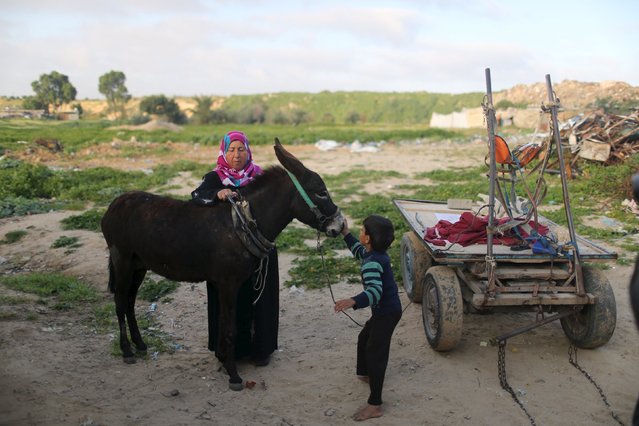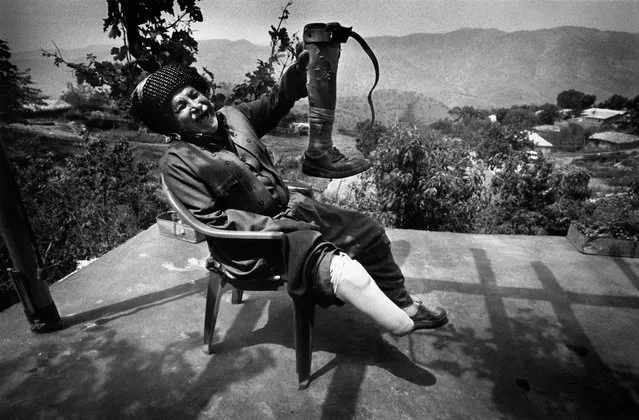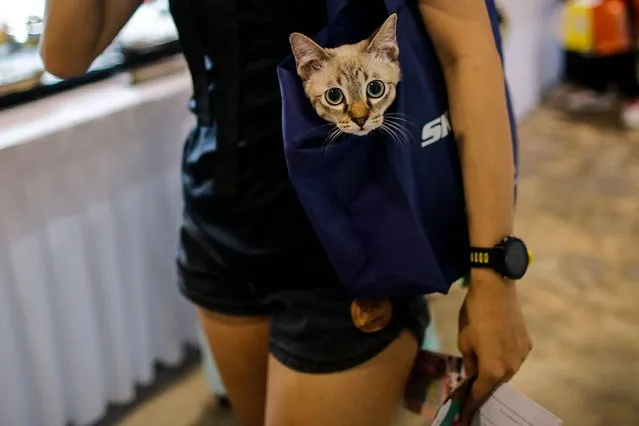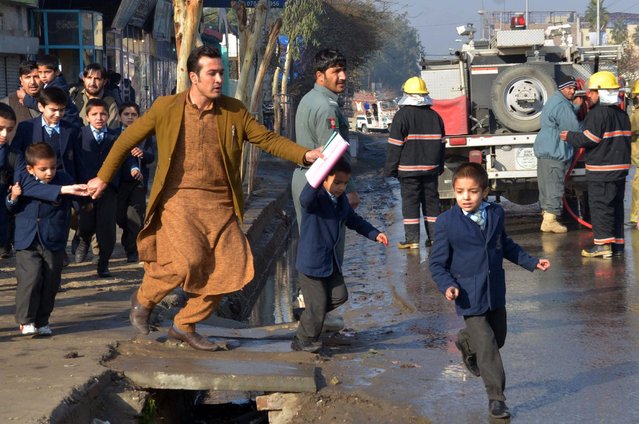
An Afghan teacher, in brown, helps school children run from the site of clashes near the Pakistan consulate in Jalalabad, capital of Nangarhar province, Afghanistan, Wednesday, January 13, 2016. Several members of the Afghan security forces were killed Wednesday after unidentified gunmen attacked the Pakistani consulate in a volatile eastern province, an official said on Wednesday. (Photo by Mohammad Anwar Danishyar/AP Photos)
15 Jan 2016 08:00:00,post received
0 comments

